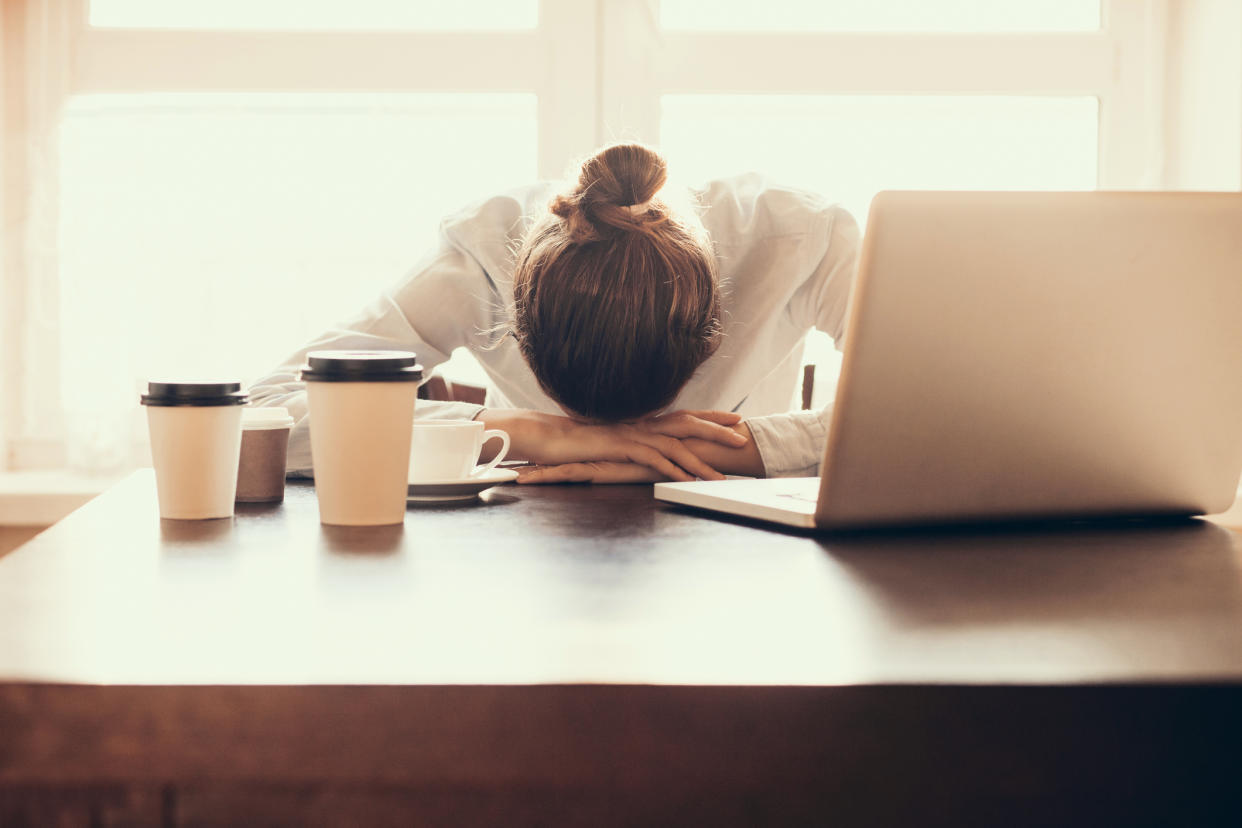Period pain is responsible for 5 million sick days in the UK each year so why haven't laws changed?

According to a new survey conducted by global healthcare company Hologic, chronic period pain has caused women to take a total of 5,581,186 sick days each year.
One in five women are affected by heavy periods, meaning 4 million women across the UK are forced to miss work as a consequence. And the study further indicates the staggering effect the global health crisis has had on the economy, as it has cost the UK alone just over £531 million.
But are companies finally beginning to recognise the need to treat period pain as a serious health condition?
Which companies across the globe offer menstrual leave?
Japan is the pioneer behind the movement, as the country became the first in the world to offer citizens menstrual leave back in 1947. The policy enables women suffering from severe period pain time off in order to prevent damaging their health at work.
South Korea, Indonesia, parts of China and Taiwan soon followed suit and began to offer female employees menstrual leave.
Only a few months ago, India became the latest country to try out the scheme, offering women the chance to stay at home on the first day of their cycle and still get paid.
![Japan was the first country to initiate change [Photo: Getty]](https://s.yimg.com/ny/api/res/1.2/FYyAF1NvCWq8BPeCLpVPqA--/YXBwaWQ9aGlnaGxhbmRlcjt3PTk2MDtoPTY0MA--/https://media.zenfs.com/en/homerun/feed_manager_auto_publish_494/ae73279ccc66046422ba4360eefe7964)
And although the United States does not have a law enabling women to take time off work during their period, sports company Nike introduced menstrual leave back in 2007 on a global scale.
Sadly, here in the UK progress has been slow and the stigma surrounding menstrual pain remains. However, there was promise when Bristol-based company Coexist announced that they would introduce the scheme for female employees. And it’s proven to be a positive initiative so far.
One employee told iNews: “I left a job when I was younger because of my horrific period. Now we all go around sharing what day of our cycle we’re on. It’s helped our relationships. There’s a different understanding of each of other now.”
However, some countries are divided when it comes to the issue. For instance, when Russia tried to implement the scheme back in 2013, it was deemed too controversial.
Do women take time off work in the UK, as a consequence to period pain?
According to the study conducted by Hologic, 73 percent of women lie about their reason for taking time off work. Despite suffering from chronic period pain, almost half of women would rather cite diarrhoea as a cause for missing work.
![One in five women suffer from chronic period pain [Photo: Getty]](https://s.yimg.com/ny/api/res/1.2/CP6zVJUQRUQ4Z7L8N04KJw--/YXBwaWQ9aGlnaGxhbmRlcjt3PTk2MDtoPTY0MA--/https://media.zenfs.com/en/homerun/feed_manager_auto_publish_494/fda6e5bf5b54c36c337019c7478e2986)
And it’s all down to the stigma surrounding menstruation. Almost two thirds of women admitted in the survey that they don’t view heavy periods as a serious medical condition, despite it being known as menorrhagia. And as a consequence, 49 percent of women have never spoken to their GP about their symptoms and simply put their struggles down to ‘just part of being a woman’.
How to ease chronic period pain
Heavy periods can cause anxiety, depression and anaemia according to recent studies. However, a fifth of British women don’t feel comfortable speaking to friends about their periods. Opening up to loved ones about our individual struggles is crucial for enabling us to learn new ways of coping with our symptoms.
According to the NHS, painkillers such as ibuprofen and paracetamol are recommended for menstrual cramps.
Daily exercise, lower back massages and relaxing activities such as yoga are also highly commended for soothing period pain.
Follow us on Instagram and Facebook for non-stop inspiration delivered fresh to your feed, every day. For Twitter updates, follow @YahooStyleUK.
Read more from Yahoo Style UK:
How to stop your period before a holiday
Turns out women don’t crave chocolate before their periods
Boys should be taught about periods at school, charity advises


